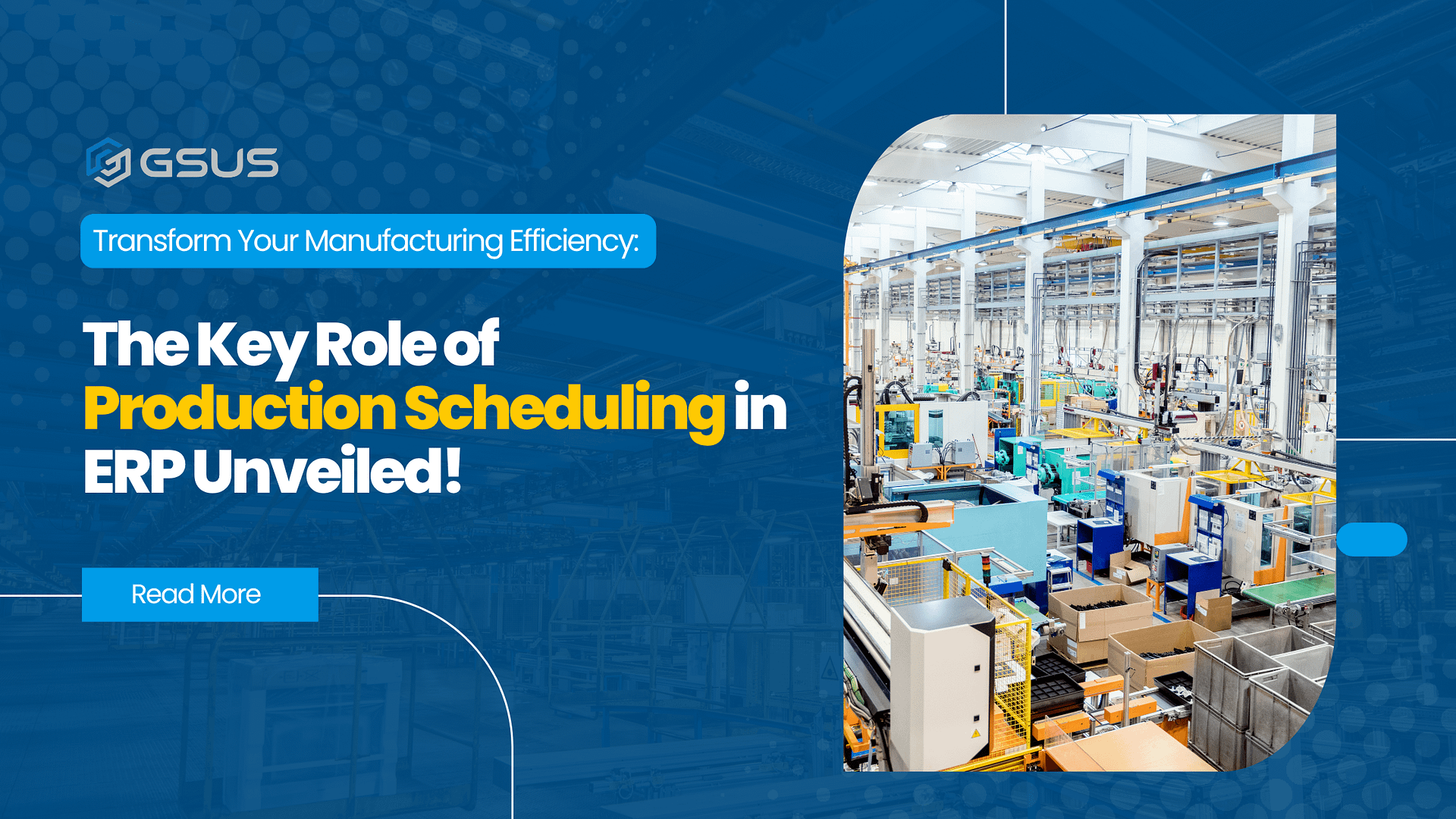In the dynamic landscape of manufacturing, efficiency is the name of the game. One of the most powerful tools at your disposal is production scheduling, especially when integrated into your Enterprise Resource Planning (ERP) system. This feature not only optimizes resource utilization but also maximizes output while minimizing waste. Let’s explore how effective production scheduling can transform your manufacturing processes and elevate your business productivity.
For Indian businesses navigating competition, compliance, and cost pressures, AI-powered ERP systems are no longer optional—they’re the foundation of scalable, future-ready operations.
What Is Production Scheduling?
At its core, production scheduling is the art of organizing manufacturing tasks based on customer demand and available resources. It involves meticulously planning every step of the production process to ensure that products are manufactured without delays. This means arranging tasks, raw materials, machinery, and workforce in a way that enhances efficiency and meets customer expectations.
By leveraging production scheduling ERP software, you can automate these processes and monitor them in real-time. This not only helps prevent excess inventory and stockouts but also reduces production costs and enhances order fulfillment.
The Importance of Production Scheduling in Manufacturing
Production scheduling is crucial for several reasons:
- Timely Fulfillment: It allows you to plan what to produce and when, ensuring that orders are fulfilled on time.
- Resource Planning: It helps in allocating raw materials and machinery effectively, optimizing their use.
- Flexibility: Effective scheduling enables you to adapt your strategies quickly in response to any unforeseen challenges.
Integrating Production Scheduling Within ERP Software
When integrated into ERP software, production scheduling becomes a powerful ally in managing production activities. It helps you strategize from sourcing raw materials to delivering finished products. With a robust production scheduling system, you can track delivery dates, machine availability, and workforce readiness.
Moreover, ERP systems monitor product quality to ensure compliance with industry standards. This real-time oversight allows for quick adjustments to meet customer demands effectively.
Key Components of Production Scheduling in ERP
Production scheduling in ERP encompasses several components that enhance your manufacturing productivity. Here are some of the key elements:
1. Material Requirement Planning (MRP)
MRP is a vital component that manages purchasing activities and analyzes production volumes to determine the right amount of materials needed. With MRP features, you can reorder stocks at optimal times, preventing overstocking and inventory shrinkage.
2. Routing
Routing optimizes your production planning by establishing an effective sequence of tasks from start to finish. It ensures that workers and machines are arranged in the most efficient order, reducing material waste and lead times.
3. Master Production Schedule (MPS)
The MPS allows you to adjust your production plans based on inventory levels, customer demands, and business capacity. This flexibility is essential for meeting critical orders without compromising quality.
4. Dispatching
Once production is complete, dispatching takes over to manage the delivery of finished goods. It provides guidelines for how to initiate dispatch according to the production plan, assigning tasks to workers based on their skills to meet targets efficiently.
5. Monitoring
Real-time monitoring of the manufacturing process helps identify delays and allows for quick decision-making. This component ensures that you can focus on products that require immediate attention, maintaining quality throughout the production cycle.
Common Challenges in Production Scheduling
Manufacturers often face several challenges in production scheduling, including:
- Resource Utilization: Striking a balance between raw materials, labor, and machinery can be tricky, leading to stockouts or overstocking.
- High Demand Fulfillment: Meeting sudden spikes in demand can disrupt production plans, making it difficult to adjust quickly.
- Unexpected Issues: Machine breakdowns or changes in customer orders can complicate scheduling, requiring rapid strategy modifications.
How ERP Systems Maximize Efficiency Through Production Scheduling
Production scheduling in ERP systems maximizes efficiency in various ways:
- Visual Management: Color-coded work orders help prioritize important tasks.
- Seamless Integration: Easy integration with other software allows for comprehensive tracking on a single platform.
- Timely Reordering: Automated stock reordering ensures that materials are available when needed.
- Enhanced Communication: Improved inter-departmental communication fosters collaboration between production and sales teams.
- Rapid Response: Quick action can be taken to address issues that arise during manufacturing.
Benefits of Production Scheduling for Manufacturers
Implementing a production schedule can yield numerous benefits, including:
1. Maximized Resource Utilization
Production scheduling ensures that raw materials, labor, and equipment are used to their fullest potential, reducing waste and saving costs.
2. Reduced Lead Time
By identifying and eliminating bottlenecks, production scheduling helps maintain supply chain activities and improves cash flow.
3. Better Product Quality
Allocating sufficient time for each task allows for regular quality checks, ensuring that products meet high standards.
4. Improved Inventory Management
Production scheduling helps avoid stockouts and overstocking by analyzing market demands, ensuring that the right amount of materials is available.
5. Enhanced Customer Satisfaction
By improving order fulfillment processes, production scheduling allows for timely delivery, fostering customer loyalty and satisfaction.
Maximize Your Business Productivity with ERP Solutions
A robust production scheduling system can streamline your manufacturing processes. With the right ERP solution, you can plan your entire production workflow effortlessly, create multi-level Bills of Material (BOM), and optimize inventory according to production targets.
Choose an ERP solution that enhances communication across departments and manages purchasing activities effectively. By doing so, you can maximize your business productivity, reduce waste, and improve lead times.
FAQs
What is production scheduling in manufacturing?
Production scheduling is the process of planning and organizing manufacturing activities to enhance efficiency and meet customer demand.
How does ERP help in production scheduling?
ERP systems provide accurate data from various departments, enabling informed decision-making in production scheduling.
What are the components of production scheduling?
Key components include Planning, Routing, Scheduling, Dispatching, and Monitoring.
What are the stages of production scheduling?
The stages include analyzing customer orders, arranging tasks, executing the production plan, and monitoring the process.
How do you create a production schedule?
Start by analyzing customer orders and conducting inventory checks. Assign tasks based on skills using production scheduling software.
